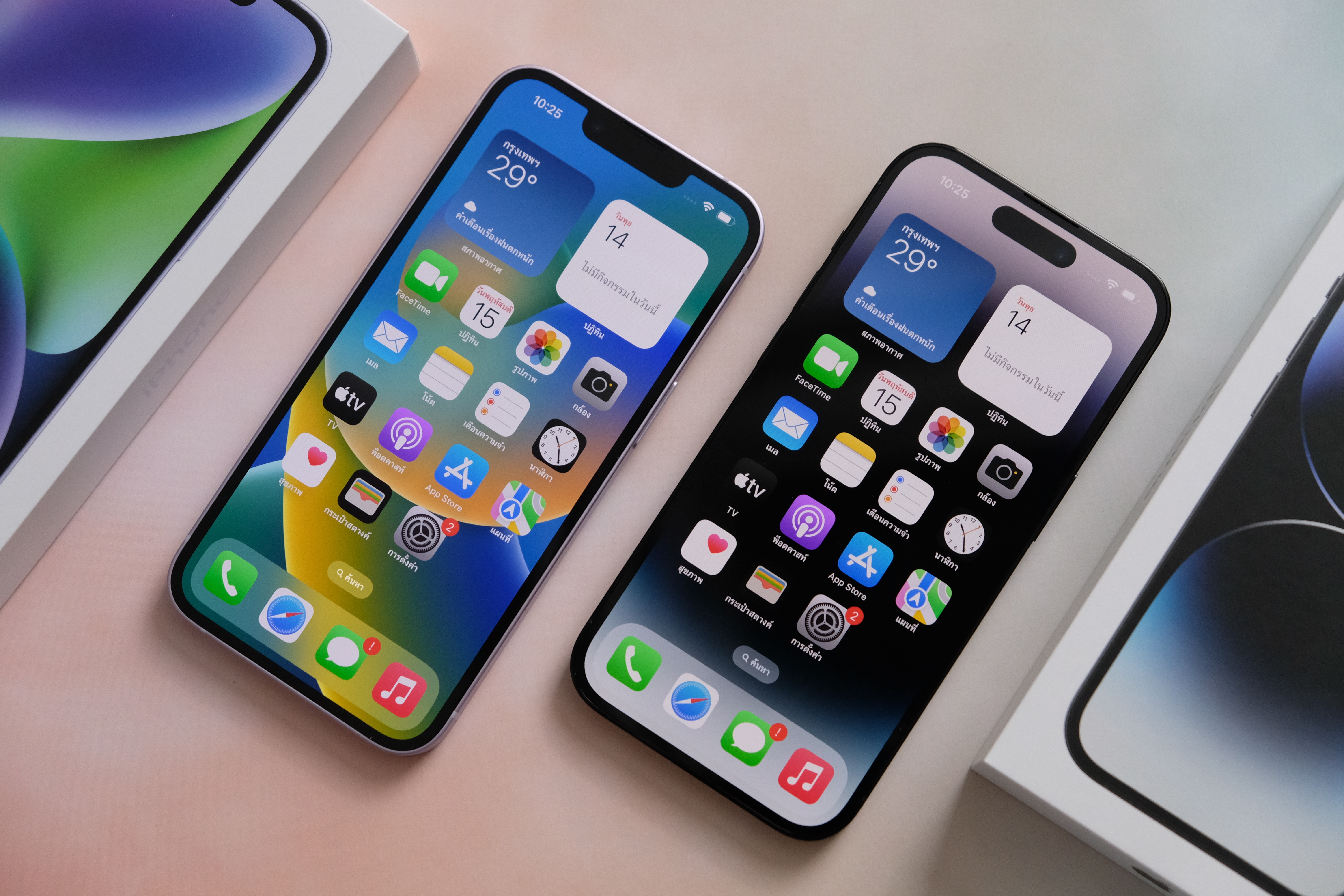
The Latest Innovations in Mobile Phone Tech
10 Oct, 202210 minsWhat are the latest innovations in mobile phone technology?Whether you’re glued to yours, ha...

What are the latest innovations in mobile phone technology?
Whether you’re glued to yours, hate it with the fire of a thousand suns, or sit somewhere in between, mobile phones are irretrievably part of everyday life. As such, it’s easy to get complacent about just how far mobile phone innovation has come – and how much is still evolving. So we thought we’d take a quick tour through the latest in mobile tech innovation and see what’s on the horizon.
The new iPhone 14 has some interesting additions
The major news this month is Apple has unveiled the iPhone 14 (in four versions: iPhone 14, iPhone 14 Plus, iPhone 14 Pro, and the iPhone 14 Pro Max). There’s good news for selfie lovers, because the handset’s new 12-megapixel camera will include autofocus for the first time. Apple also reckons the camera is 49% better at capturing pics in low-light conditions, which is great for those who like to snap photographic evidence of nights out (some of us, on the other hand, prefer to forget)! The camera will also be able to capture fast-moving subjects. Amateur photographers have much to look forward to, then, but what else can we expect from the new handset?
Other notable additions are designed to help users when they get into, shall we say, sticky situations. There’s a new crash detection system, which will contact emergency services when it detects an impact. Plus, the handsets will be able to send emergency texts via satellite when users are in a remote area with no service. (Basically, the phone displays the location of passing satellites and gives instructions on how to point the device at the satellite to send a message – with a basic message taking as little as 15 seconds to send.)
If these seem like odd features to focus on, consider how the Apple Watch is capable of monitoring your heart health. It seems Apple is increasingly positioning its products as essential health and safety aids – something you can never afford to be without. It’s a smart strategy.
Satellite-connected handsets
Apple isn’t the only company to build satellite connectivity into mobile phones. Elon Musk is working on a satellite phone offering with T-Mobile, although it’s unlikely to be available before the end of 2023. (Musk has openly admitted that getting regulatory approval to launch satellites has slowed down his plans.)
Meanwhile, a UK company is hoping to get the jump on Musk and challenge Apple by launching its own satellite-connected handset in 2023. The Bullitt phone will automatically link to satellite networks in the event that there’s no wi-fi or mobile network availability, allowing users to send and receive text messages. So, it’s just like the iPhone 14’s satellite option – except, where the iPhone’s new feature will (at first) only work in the US and Canada, Bullitt has said its phone will have global satellite coverage, thanks to deals with two (as yet unnamed) global satellite providers. So far, there’s no word on how much consumers will have to shell out for the Bullitt phone, but the company has confirmed there’ll be a monthly subscription fee for the satellite service, on top of the usual monthly network charge.
It’s cool to see companies making real headway in satellite connectivity. Sure, it’s not for everyday use, but when you’re in an area with no connectivity (a so-called ‘not spot’), the ability to send and receive messages could be a life-saver.
What about folding phones?
Folding smart phones have been around for a few years now, with Samsung and Huawei leading the way. For those who missed the small, convenient flip phones of the 2000s – ah, those good old days when phones could actually fit snugly in your pocket – the folding smart phone seemed like the dream handset. But for many, it’s turned out to be a nightmare, with widespread reports of the folding screens breaking within a year or so (in some cases, mere hours). That’s not ideal at a time when more and more consumers expect their phones to last several years before they upgrade. (For the record, Samsung says its latest generation of folding phones can survive 200,000 folds, but many users are sceptical of this figure.) Therefore, the future of folding phone innovation is, for the time being, most likely to centre around longevity.
As for market penetration, Samsung reportedly sold almost 10 million folding handsets in 2021 – which sounds good until you realise that Apple sold almost 50 million iPhones within three months.[i] Safe to say, folding handsets haven’t taken a huge bite out of the market so far, but as the handsets become longer-lasting, that could change.




